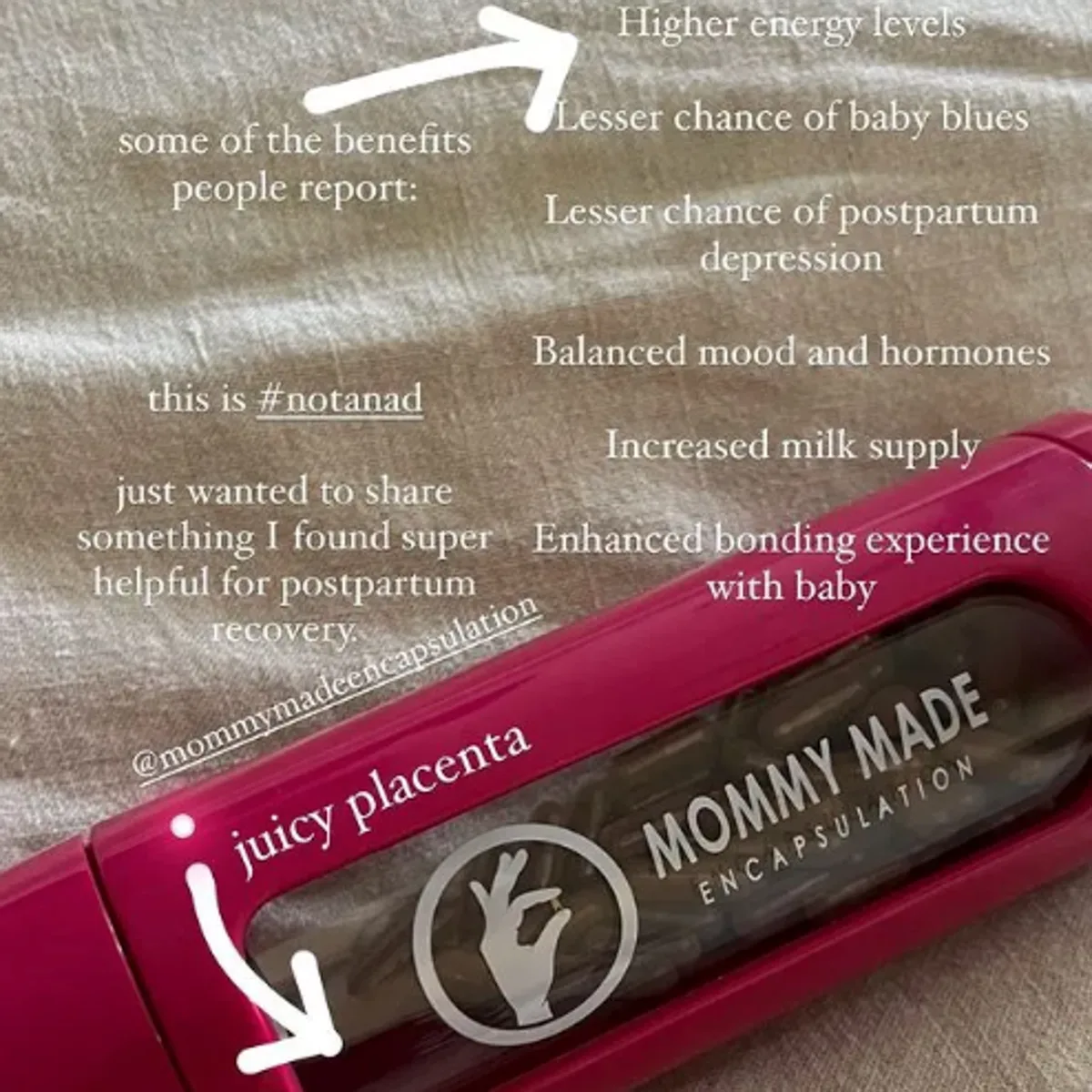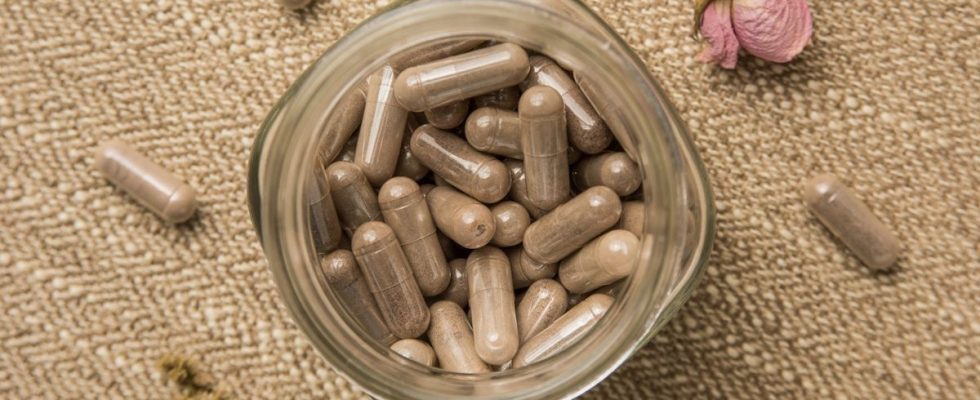Published on
Updated
Reading 2 min.
in collaboration with
Dr Odile Bagot (Gynecologist-obstetrician)
It’s a trend that’s skyrocketing among young mothers in the United States in recent years: eating your placenta after giving birth. Kourtney Kardashian, who has just had a child, is not left out and even claims that this practice helps fight postpartum depression. What is it really? The response from Dr Odile Bagot, gynecologist member of the Doctissimo expert committee.
It is a publication that caused a scandal in the United States. Kourtney Kardashian, who has just had a baby, posted an image of capsules, made from her placenta, which “helped” her after giving birth by giving her “higher energy levels”. “enhanced bonding experience with baby,” “balanced mood and hormones,” and “lower risk of baby blues and postpartum depression.” The reality starlet also claims it helps return the uterus to its “pre-pregnancy size.”

Experts stand up against these assertions
These capsules, which cost $400, are sold as “a daily nutritional supplement rich in vitamins, minerals, iron, proteins, stem cells and hormones made by your body, for your body“. American experts have been up in arms since these false claims, published on Instagram. They accuse Kourtney Kardashian of promoting “dangerous pseudo-science”.
“No study has been able to demonstrate anything”
The placenta is an organ that develops in the uterus during pregnancy and provides oxygen and nutrients to the fetus. For Dr Odile Bagot, he has been at the heart of symbolic beliefs for several years. “Ideas that the placenta is an elixir of youth or that it would be able to cure this or that condition, such as baby blues or postpartum depression, are false. To date, no scientific study has been able to demonstrate this.” explains the specialist.
“The baby blues are felt by all women a few days after giving birth and it is normal. It does not last. As for postpartum depression, it is a real disorder that must be properly managed at home. the mother, by a medical team” she recalls.
What are the risks when eating your placenta?
While there is no evidence of the benefits of consuming placenta, it is not without risks either. The organ is transformed into capsules by specialized companies in the United States, combining extracts with herbs and other natural compounds. But contamination remains possible.
In 2017, the US Center for Disease Control and Prevention (CDC) issued a warning against these placental pills after a child in Oregon was infected with group B streptococcus bacteria. The Oregon Health Authority later explained that the pills the mother was taking may not have been properly sterilized and likely caused the infection via breast milk.
NO to diets, YES to WW!
A practice not recommended by American obstetricians
The practice is therefore formally discouraged by experts. “As obstetricians, it is important to tell the truth” explains Dr. Amos Grunebaum, obstetrician and lead author of a metaanalysis of dozens of studies on placenta consumption. “And the truth is that it’s potentially harmful and there’s no evidence that it’s beneficial, so don’t do it.” reports the Daily Mail. The specialist goes further by advising his colleagues to “discourage their patients from eating the placenta in any form“.
